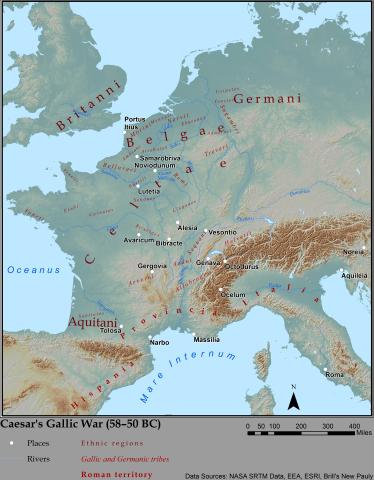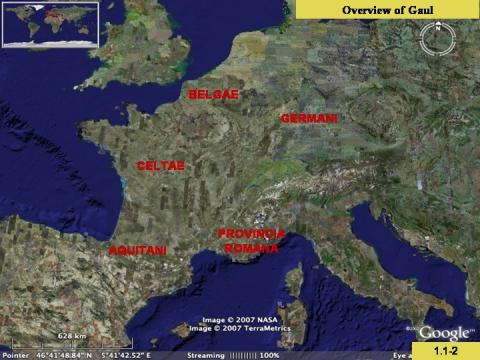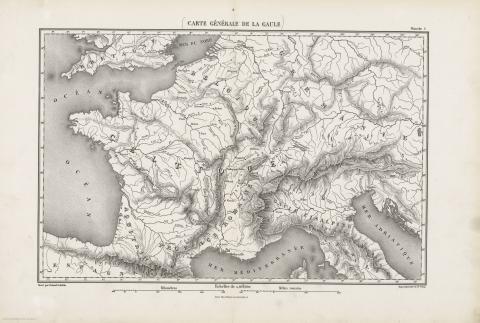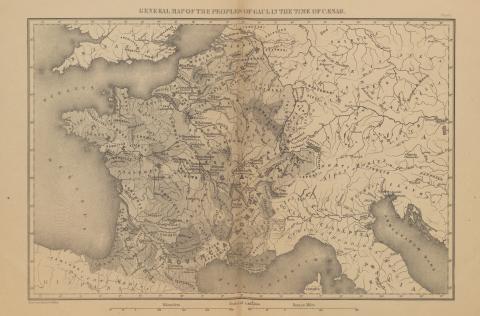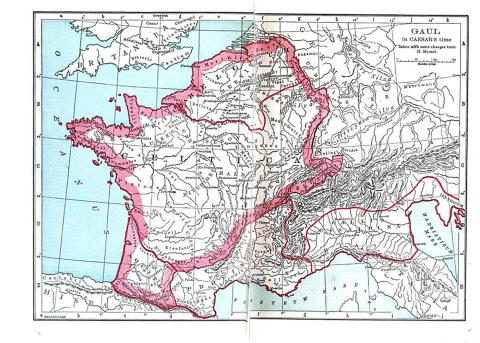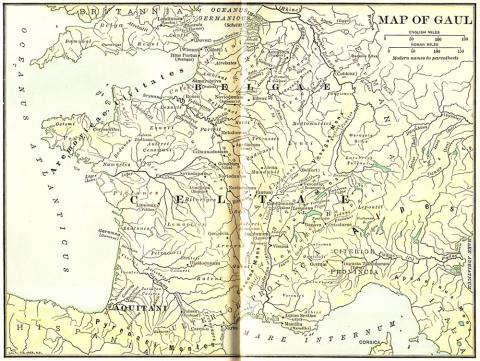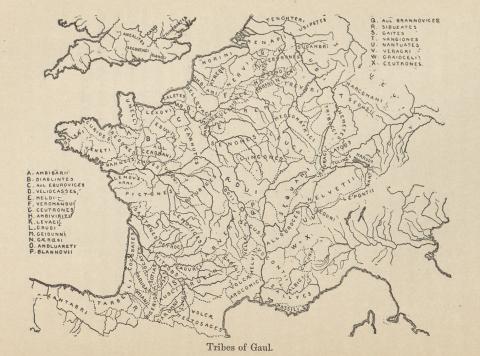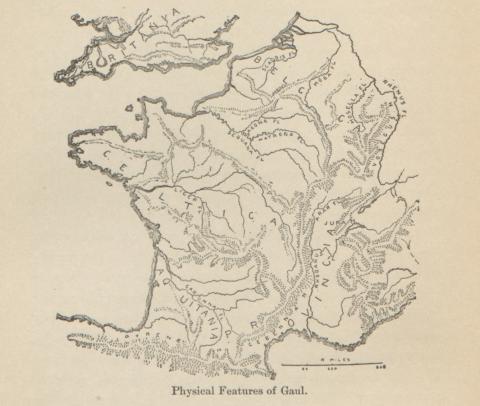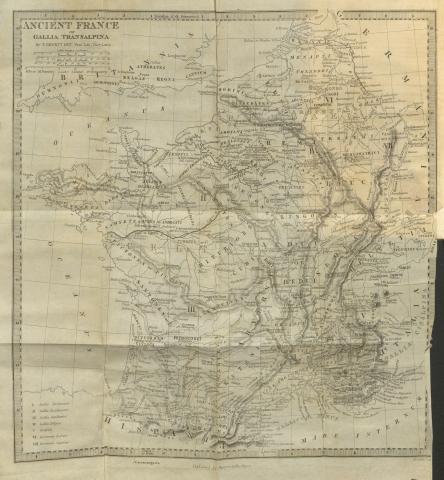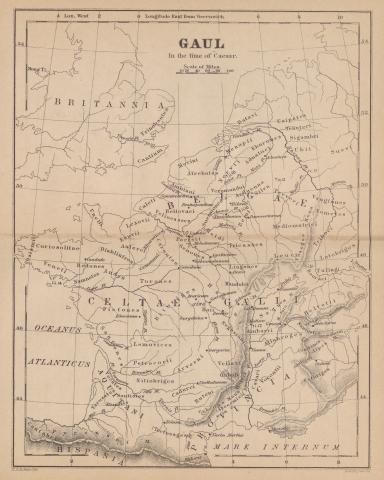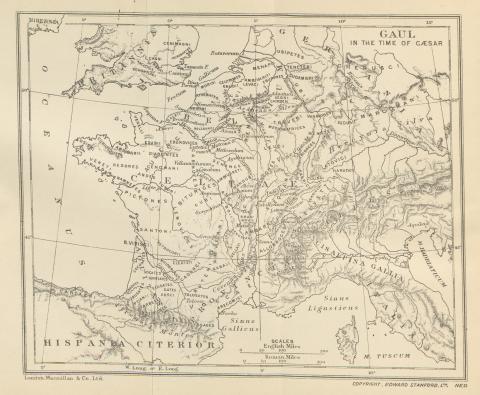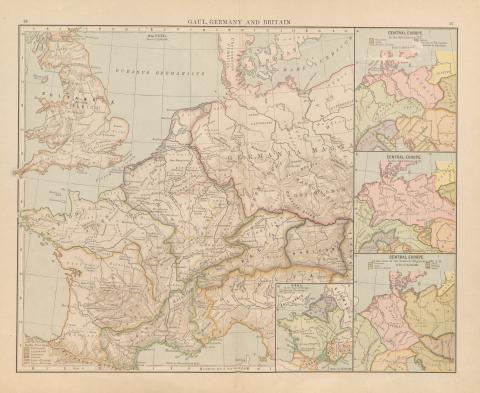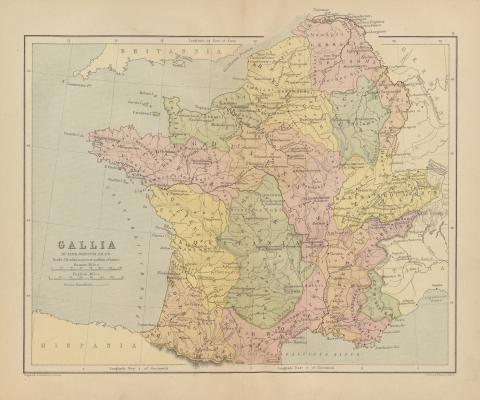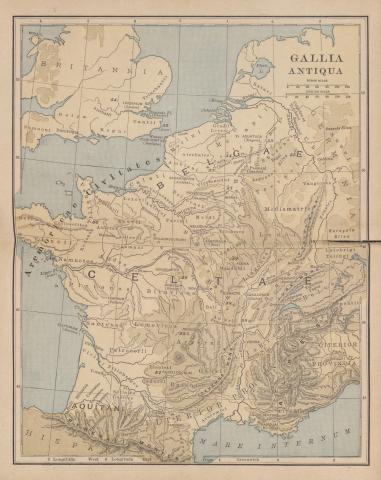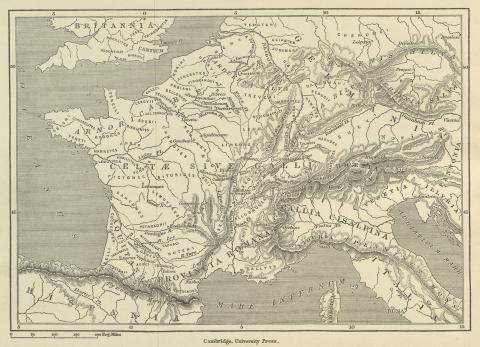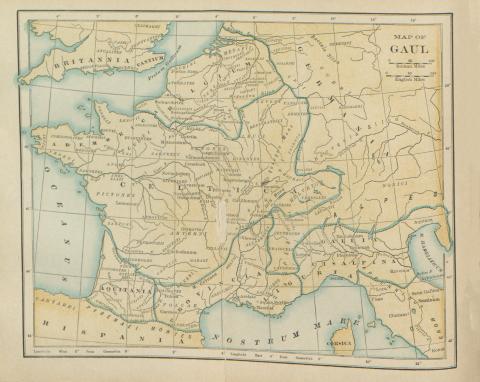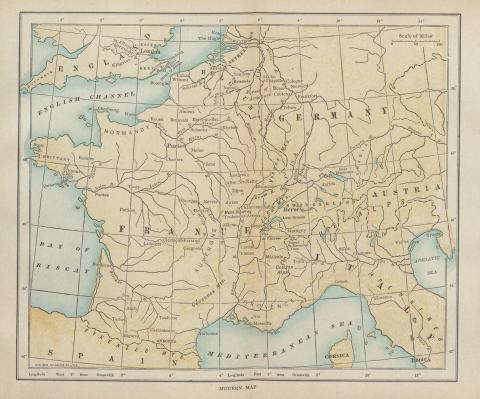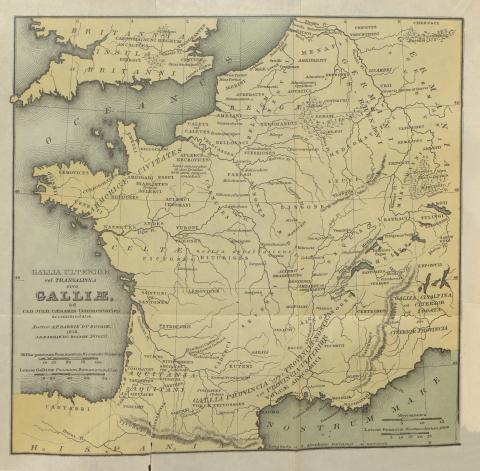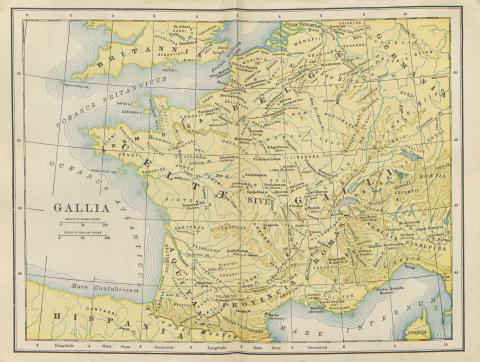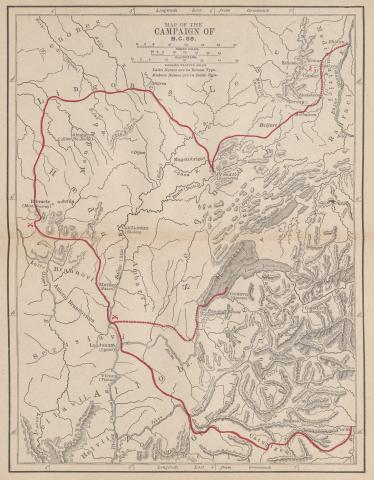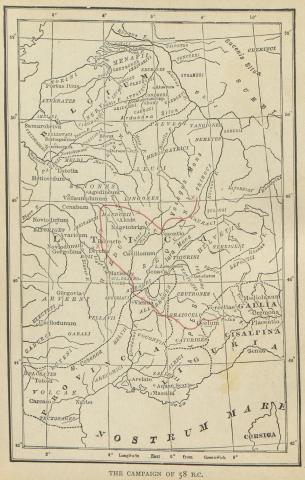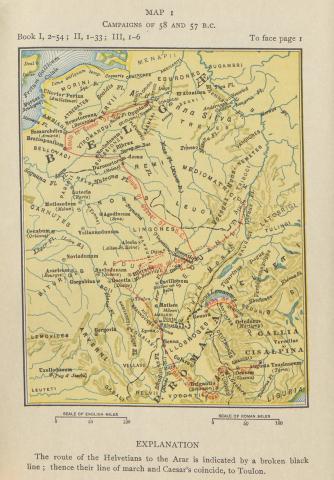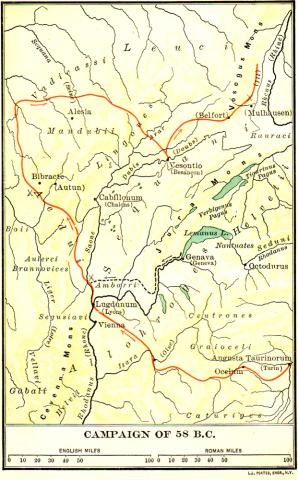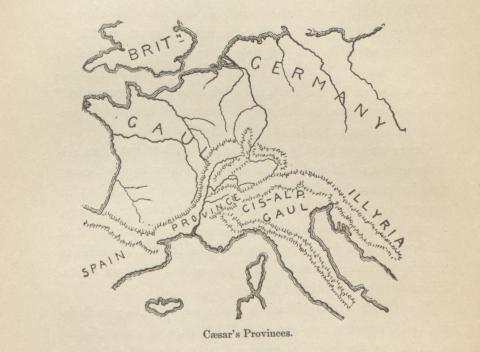Gallia est omnis dīvīsa in partēs trēs, quārum ūnam incolunt Belgae, aliam Aquītānī, tertiam quī ipsōrum linguā Celtae, nostrā Gallī appellantur. Hī omnēs linguā, īnstitūtīs, lēgibus inter sē differunt. Gallōs ab Aquītānīs Garumna flūmen, ā Belgīs Mātrona et Sēquana dīvidit. Hōrum omnium fortissimī sunt Belgae, proptereā quod ā cultū atque hūmānitāte prōvinciae longissimē absunt, minimēque ad eōs mercātōrēs saepe commeant atque ea quae ad effēminandōs animōs pertinent important, proximīque sunt Germānīs, quī trāns Rhēnum incolunt, quibuscum continenter bellum gerunt. Quā dē causā Helvētiī quoque reliquōs Gallōs virtūte praecēdunt, quod ferē cotīdiānīs proeliīs cum Germānīs contendunt, cum aut suīs fīnibus eōs prohibent aut ipsī in eōrum fīnibus bellum gerunt. Eōrum ūna pars, quam Gallōs obtinēre dictum est, initium capit ā flūmine Rhodanō; continētur Garumnā flūmine, Ōceanō, fīnibus Belgārum; attingit etiam ab Sēquanīs et Helvētiīs flūmen Rhēnum; vergit ad septentriōnēs. Belgae ab extrēmīs Galliae fīnibus oriuntur; pertinent ad īnferiōrem partem flūminis Rhēnī; spectant in septentriōnem et orientem sōlem. Aquītānia ā Garumnā flūmine ad Pȳrēnaeōs mōntēs et eam partem Ōceanī quae est ad Hispāniam pertinet; spectat inter occāsum sōlis et septentriōnēs.

